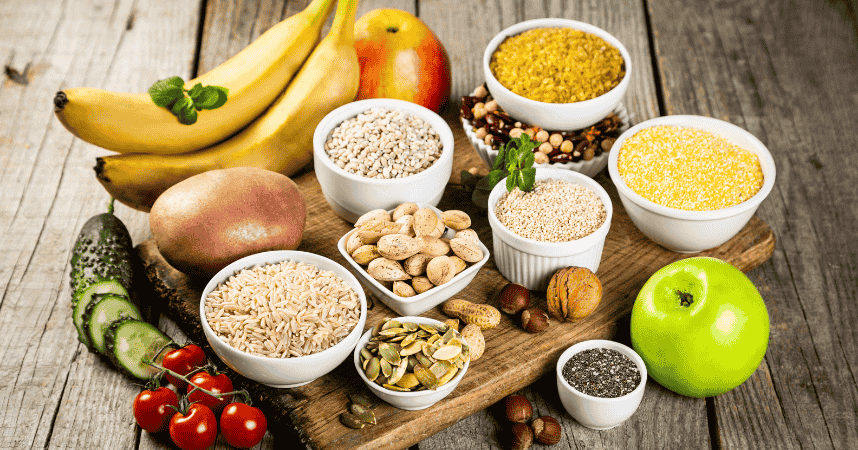- Mon - Fri: 8 AM - 5 PM.
- 1806 Professional Dr A, Sacramento, CA 95825

When it comes to oral health, brushing twice a day and flossing regularly are non-negotiable. But did you know that what you eat also has a direct impact on your teeth and gums? Just like your body needs proper nutrition, your mouth depends on essential vitamins and minerals to stay healthy. Certain foods can help strengthen enamel, prevent gum disease, and reduce the risk of cavities. By adding the right items to your daily diet, you can build a natural defense system against oral problems.
In this blog, we’ll explore the top 10 foods that strengthen your teeth and gums and explain why they deserve a place on your plate.
Food is fuel not only for your body but also for your mouth. Teeth and gums require a steady supply of nutrients to repair damage, resist bacteria, and maintain strength. Calcium builds enamel, vitamin D helps absorb it, vitamin C keeps gums healthy, and antioxidants reduce inflammation. Without these nutrients, teeth become weak, gums inflamed, and cavities more likely.
The American Dental Association (ADA) emphasizes that a well-balanced diet rich in vitamins and minerals supports both oral and overall health (ADA – Nutrition and Oral Health).
→ Top 10 Foods for Stronger Teeth and Gums
Dairy products are rich in calcium and phosphorus, two minerals essential for strong enamel. Cheese, in particular, increases saliva production, which helps neutralize harmful acids in the mouth. Yogurt is also a good source of probiotics, which balance oral bacteria and reduce the risk of gum disease.
Leafy greens are nutritional powerhouses packed with calcium, folic acid, and vitamin C. Calcium strengthens teeth, while folic acid and vitamin C support gum tissue and reduce inflammation. Adding a serving of spinach or kale to your meals can make a noticeable difference in oral health.
These vegetables act like natural toothbrushes. Their crunchy texture scrapes away plaque and food particles, while chewing increases saliva flow, which helps wash away bacteria. Celery even contains antioxidants that benefit gum health.
Often called “nature’s toothbrush,” apples and pears are high in fiber and water. The fibrous texture stimulates gums, increases saliva, and gently cleans teeth. Pears are especially effective at neutralizing acids that cause enamel erosion.
Nuts like almonds, walnuts, and cashews are low in sugar but high in protein and calcium. Almonds are particularly good for strengthening enamel and providing sustained energy without harming teeth. Their crunchy texture also stimulates saliva production.
Fatty fish are excellent sources of vitamin D, which helps the body absorb calcium effectively. Without vitamin D, calcium cannot be properly utilized, leaving teeth vulnerable. Omega-3 fatty acids in fish also reduce gum inflammation and support healing.
Tea contains polyphenols, powerful antioxidants that reduce the growth of harmful bacteria in the mouth. Both green and black teas also contain fluoride, which strengthens enamel. However, it’s best to avoid adding sugar and limit staining by rinsing with water afterward.
Strawberries are rich in vitamin C, which supports gum tissue and prevents bleeding gums. Citrus fruits like oranges and grapefruits also boost vitamin C levels, but they should be eaten in moderation due to their acidity. Rinsing with water afterward helps protect enamel.

Plain water, especially fluoridated water, is one of the best ways to maintain oral health. It rinses away bacteria, food debris, and acids. In the US, most public water supplies contain fluoride, which has been proven to reduce tooth decay. Staying hydrated also prevents dry mouth, which can increase cavity risk.
They may not leave the freshest breath, but onions and garlic contain natural antibacterial and antimicrobial compounds. These properties help fight harmful bacteria in the mouth and protect against gum infections. Adding them to cooked dishes can provide oral health benefits without overwhelming flavor.
Just as some foods help your mouth, others can harm it. Limiting sugary drinks, sticky candies, acidic sodas, and refined carbs reduces the risk of cavities and enamel erosion. Moderation is key—occasional treats are fine if balanced with good oral hygiene.
The right diet is only one part of maintaining oral health. For best results, combine these foods with:
Brushing twice daily with fluoride toothpaste.
Flossing once a day.
Drinking plenty of water.
Scheduling regular dental checkups.
This complete approach ensures your teeth and gums stay strong for life.
Final Thoughts
Strong teeth and healthy gums don’t just come from your toothbrush—they start with what you eat. By incorporating dairy, leafy greens, crunchy veggies, fruits, nuts, fish, and other nutrient-rich foods into your diet, you can give your smile the nutrients it needs to shine.
At Dental Krafts, we believe prevention is always better than cure. Pair these foods with regular checkups, and your teeth and gums will thank you for years to come.
No. While a healthy diet supports strong enamel and gums, brushing, flossing, and professional dental care are still essential.
Vitamin C is crucial for healthy gums. A deficiency can lead to bleeding gums and even gum disease.
Yes. Sugar-free gum stimulates saliva production, which neutralizes acids and helps prevent cavities.
Acidic fruits like citrus can erode enamel if consumed in excess. Eating them in moderation and rinsing with water afterward reduces the risk.
Quick Links
Services
Areas We Serve
Contact info
Open hours